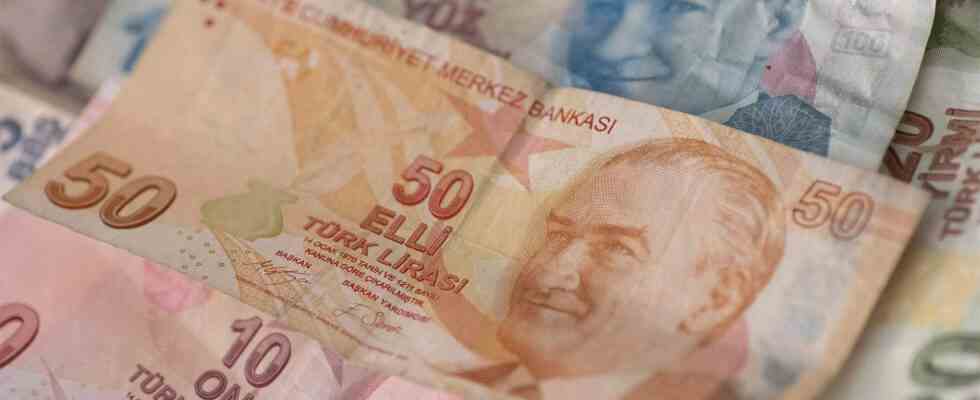Status: 02/23/2023 2:59 p.m
The Turkish central bank lowered its key interest rate after the devastating earthquake. However, the central bankers are not expecting the natural disaster to have any lasting effects on the economy.
The Turkish central bank in Ankara has lowered the key interest rate by 0.5 percentage points – to 8.5 percent. It’s the lowest it’s been in three years. On average, however, economists had expected an even greater reduction to 8.0 percent, probably also against the background of the earthquake disaster.
The central bank had kept the key interest rate stable for the last two months after it had been lowered several times before. The central bankers had decided to take a break after several interest rate cuts had recently weighed on the Turkish lira. The weak Turkish lira is considered a major reason for the high inflation.
Earthquakes only affect the economy in the short term
“The effects of the earthquake on production, consumption, employment and expectations will be evaluated comprehensively,” says the central bank’s statement on the interest rate decision. The central bank assumes that the earthquake will only affect economic activity in the short term. However, the natural disaster should not have any lasting effects on the performance of the Turkish economy. Earlier this month, the east of the country was hit by one of the strongest earthquakes in decades.
Inflation in Turkey is very high in international comparison. The inflation rate last stood at 57.7 percent in January. Actually, according to economic doctrine, significant interest rate increases would be the order of the day in order to cool down economic activity and thus get inflation under control. However, Turkish President Recep Tayyip Erdogan is opposed to high interest rates.
On the foreign exchange market, the Turkish lira hardly reacted to the interest rate decision. After heavy price losses in the past year, the exchange rate of the lira has remained stable at a low level in recent months. The extremely loose Turkish monetary policy and the interest rate hikes by other important central banks had weighed heavily on the lira in 2022.

